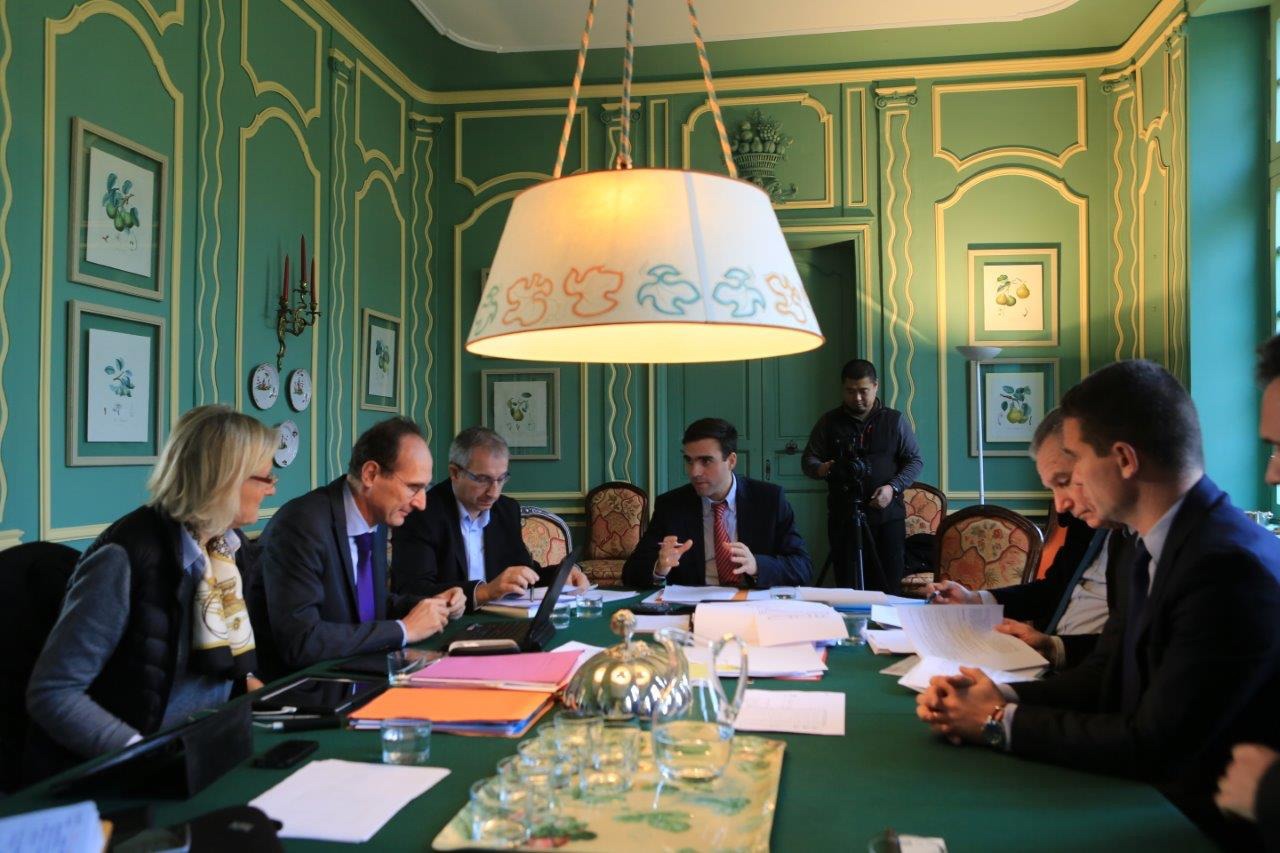Understanding the Costs of Buying (Luxury) Property in France
Understanding the costs of buying a luxury property in France is probably a good place to start in any discussion about the purchase process. You may have seen the letters ‘FAI’ after prices quoted by French Estate Agents – this is a reference to the notice to buyers that the “frais d’agence inclus” or the Fees of the Agent are included in the published price. This is a common practice and certainly at Maxwell-Baynes Real Estate our luxury property listings have prices that include agency fees.
The Role of the Notaire in France
The “Notaire” is the public official responsible for receiving all the completed contracts (known as “actes”) to which the parties wish to:
1. confer the seal of legal authenticity,
2. assure their accurate date,
3. hold them in trust and
4. deliver authentic copies of the transfer of legal title from a seller to a buyer.
The contract deeds which a notaire draws up, like all judicial decisions, have a probative and binding force. Working with a competent and preferably English-speaking notaire is invaluable and their role is often poorly understood by non-French buyers. From a US buyer perspective, you could say that they are an escrow officer and title officer rolled into one professional service that is then heavily regulated by the state. From a UK and British commonwealth point of view they are a cross between a conveyancer and a lawyer specialising in real property transactions – most commonly at the domestic level rather than the corporate level. Their role will therefore commonly include:
- Drawing up the purchase contract (The Compromis de vente or promesse de vente)
- Placing the buyer’s deposit into a secure dedicated unique government backed client account
- Hosting and directing the signing process (often a 3 to 4-hour meeting)
- Doing an exhaustive title check
- Complete an audit related to the legal steps to acquire a property
- Drawing up the Deed of Sale
- Receiving stamp duty and passing it on to central government
- Registering title in the name of the new owner

How to budget the costs of purchasing real estate in France.
As well as the price of a property and the real estate agency fees, there are other fees that are important to consider when purchasing residential property in France – the majority of these are overseen by the Notaire. At the time of writing (spring 2018) a sensible budget would look something like the table below based on the purchase of a French property at an agreed price of €1,000,000. However, please note that this is a summary – in the buyer’s final account breakdown there will most likely be a lot more detail and if a loan is taken out there will be administrative and registration fees for that too. Nevertheless, as the table illustrates, the purchase costs will amount to just over 7,0% of the total purchase price – the vast majority of which is stamp duty.
| Purchase price | Percent % | Amount € | Notes |
|---|---|---|---|
| Purchase price | €1,000,000 | FAI – so incl 5% + VAT agents fees | |
| Stamp duty tax | 5.809% | €58,090.00 | |
| Public registration | 0.10% | € 1,000.00 | |
| Documentation costs | € 1,000.00 | ||
| Notaire costs | 0.825% | € 8,250.00 | This includes all legal work, transaction work and title insurance |
| Notaire costs | € 411.25 | Base cost of notaire fees then above percentage is on a scale | |
| VAT on notaire costs | 20% | € 1,732.25 | Value added tax (VAT) is charged on all fees in France at 20% |
| TOTAL | € 70,483.50 | Total transaction costs over and above purchase price |
NB:
- Assumes purchase of the assets not the shares of a company
- Assumes no mortgage
- Does not include costs for setting up a new company or French estate planning for inheritance purposes
- Does not include property taxes prorated for the year up to the point of close of the purchase.
What will the French Notaire need from a buyer?
For the Notaire to draw up the Purchase Contract (Compromis de vente or promesse de vente) the buyer will need to provide passport, marriage certificate (and divorce certificates) as well as place of birth, citizenship and current address. If money is being borrowed, the buyer will also need paperwork with details of the loan. If the payment is cash, then the buyer needs to provide details of where the money is coming from. There are increasingly strict anti-money laundering and anti-terrorism laws in the EU which the Real Estate Agent and the Notaire are obligated to adhere to.
The Notaire is unlike most European solicitors/lawyers in the respect that he/she is not appointed to act for either party in the transaction, but as a public official whose duty is to the government to ensure that the transaction is conducted correctly and of course, the taxes are collected.
Their function is to ensure that the transaction is carried out accurately and in accordance with the law and to give the transaction absolute validity that cannot be contested.
A French property Buyer’s Checklist
- View property and agree purchase price. If not already obtained, the vendor will have to supply a full set of property diagnostics (the ‘DDT’). These diagnostics will cover presence of lead paint, asbestos, termites, any gas fittings and the electrical system. A separate report on the drainage system will also be obtained.
- The initial contract, the ‘compromis de vente’ is drawn up, signed by both parties, and a deposit of (usually) 10% is put down. This deposit is held in escrow by the Notaire. At this point the contract becomes binding to the vendor, but the buyer has a ‘cooling-off’ period of 10 days during which he or she can withdraw from the agreement without penalty. After the cooling-off period, the contract becomes binding to the buyer and the 10% deposit will be lost if the buyer withdraws.
- The Notaire will conduct his due diligence (land registration checks, searches etc) which normally takes around 6 weeks. A completion date will also be proposed.
- The Acte de Vente (the completion) will occur in the Notaire’s office. The full payment is also required 24 hours prior to the signing.
It is possible to organise a power of attorney (a ‘procuration’) if either party cannot be present at the Act de Vente. To complete your understanding we would encourage you to watch this helpful video describing the process.
This guide is provided for general information purposes only and is not intended to be a substitute for professional legal advice regarding any aspect of purchasing a French property.

We hope you have found this article useful. If you have any questions, please don’t hesitate to get in touch.
Please take a look at our listings of luxury properties for sale in South West France.
Article written by Michael Baynes, Co-founder of Maxwell-Baynes Real Estate.

